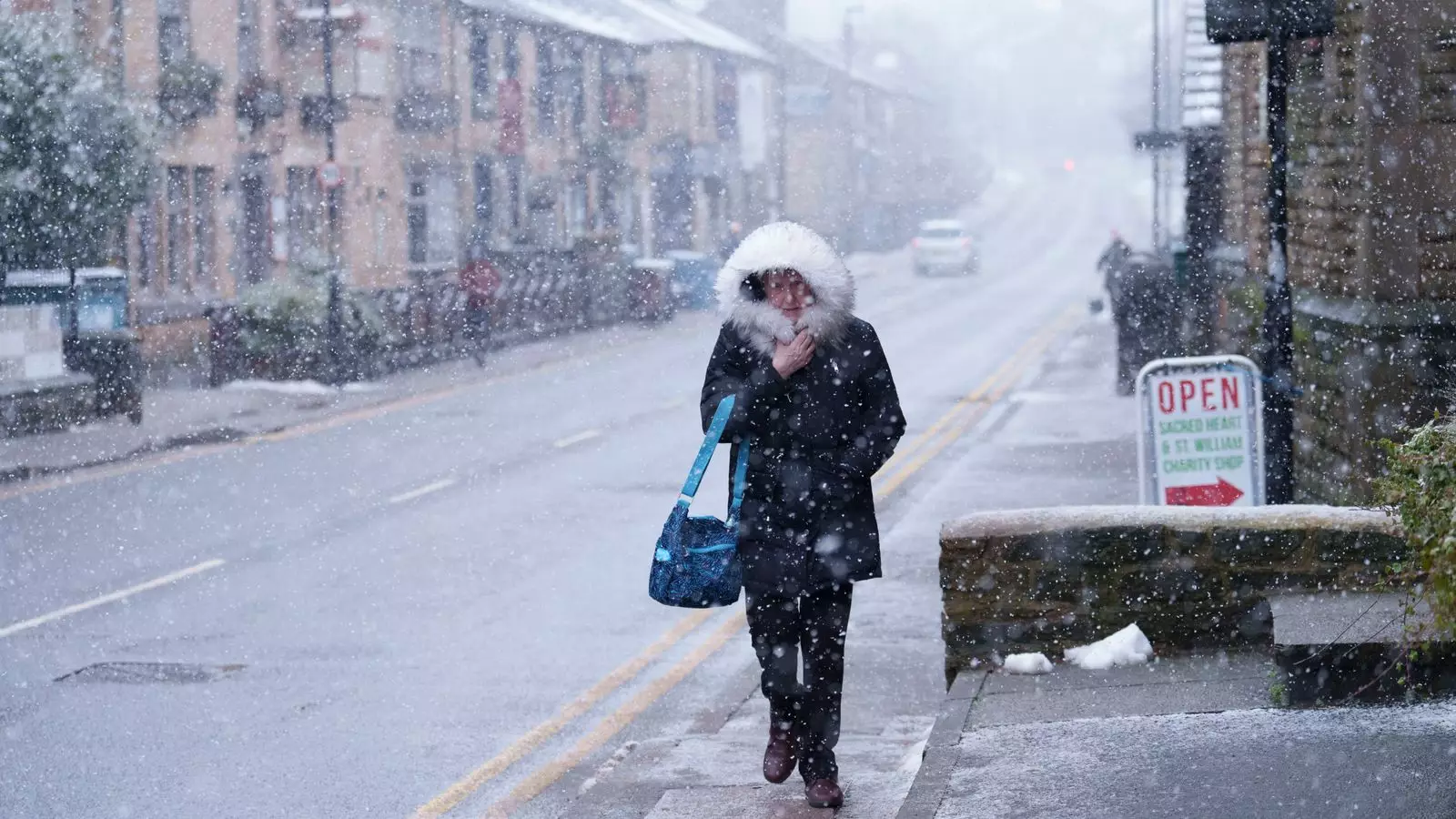As the United Kingdom grapples with extreme winter weather conditions, a fresh weather warning concerning snow has been issued for southern England. With various cautions for snow and ice already active throughout the country, the Met Office has taken necessary measures to inform residents of possible hazards. This alert not only underscores the urgency brought about by nature’s harshness but also reflects the broader implications of climate variability that regions across England are increasingly facing.
Details of the Weather Warning
Specifically, the Met Office has placed a yellow weather warning in effect from 9 AM until midnight on Wednesday, highlighting potential accumulations of 2 to 5 centimeters of snow in southern counties, with elevations possibly receiving up to 10 centimeters. This significant snowfall is expected to coincide with one of the coldest nights of the year, with temperatures plummeting to chilling lows of -14C in some areas. As predicted, the weather’s severity is not confined to one region; the North East of England and parts of Scotland are bracing for negative readings, reaching as low as -16C.
This harsh winter weather poses serious threats; not only could it lead to formidable challenges for transportation networks, but it might also impair emergency services’ abilities to respond promptly. The combination of snow and ice can create hazardous driving conditions, and the potential for untreated roads to become icy only exacerbates this already precarious situation.
The winter storms have not only brought snow but have also triggered ongoing flooding concerns. The Environment Agency reported that at least 300 properties have incurred flood damage since the New Year, highlighting an urgent need for preparedness against such calamities. In response, over 41,000 properties have been assessed and safeguarded against flooding, showcasing the proactive measures being deployed to mitigate risks.
Following severe rainfall during the New Year, regions including the North West of England and Yorkshire have witnessed severe river and surface water flooding. The cumulative effect of persistent rainfall, alongside subsequent snowmelt, has chimed alarm bells across the Midlands, prompting a widespread assessment of the flooding risks that have become, alarmingly, an unfortunate norm for many communities.
Reflecting on the damage and distress inflicted by these harsh weather patterns, Floods Minister Emma Hardy expressed her sympathies towards affected individuals and communities. Her statement underscored the critical role of both the Environment Agency and emergency services as they work diligently to ensure public safety. The message is clear: residents should heed warnings and remain vigilant in the face of these relentless weather challenges.
Roughly 100 flood warnings remained valid across England as of Wednesday, further emphasizing the need for community awareness and readiness. Urgent communications from the Environment Agency indicated that residents in particularly vulnerable areas, such as caravan parks near affected rivers, should prepare for potential evacuations. Remarkably, Leicestershire Fire and Rescue Service reported that they had rescued dozens of individuals trapped by floodwaters, which serves as a grim reminder of the human impact of such natural disasters.
As heavy snowfall and flooding create widespread disruptions across the UK, a number of schools have closed their doors, while crucial transportation networks face significant blockages. Airports in Manchester, Bristol, and Liverpool, major travel hubs, have suspended flights due to the prevailing conditions, further complicating mobility for both residents and travelers.
The unfolding meteorological scenario in southern England has cast a spotlight on the importance of preparedness in the face of natural disasters. As communities navigate both snow and flood threats, the need for reliable information and swift government action becomes clearer than ever. The prevailing weather patterns serve as a stark reminder of the challenges that climate change poses, urging a collective reassessment of our environmental resilience and readiness to face such adversities in the future.

Leave a Reply